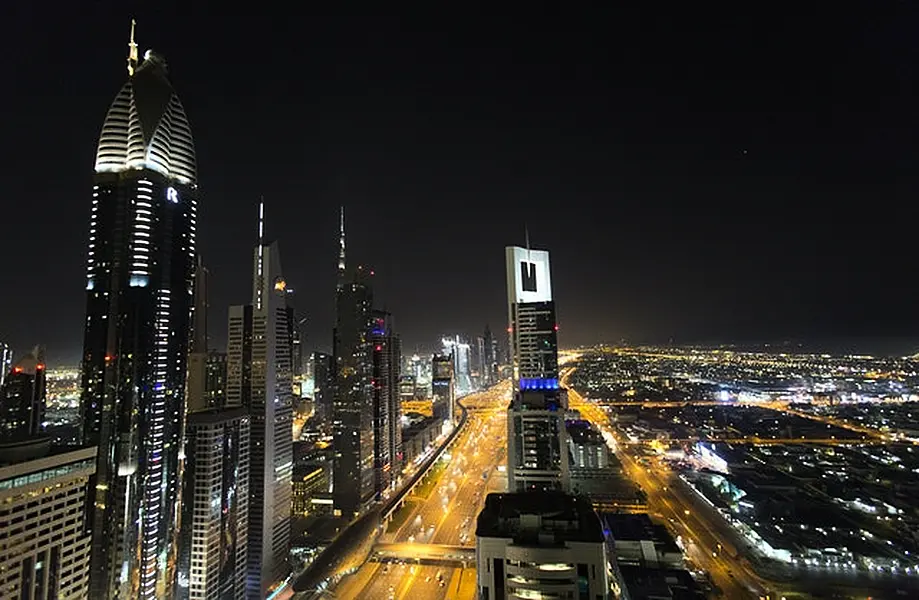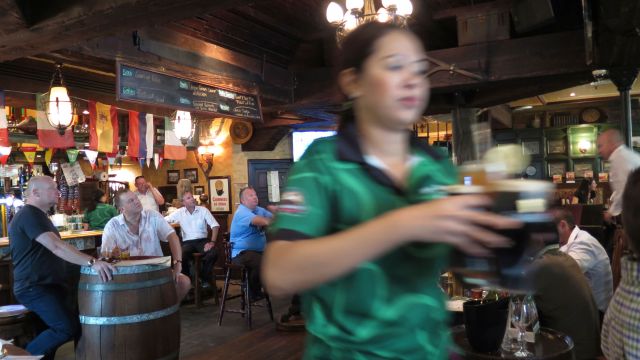The outbreak has exacerbated the already-gathering economic storm engulfing the emirate, which has seen mass layoffs thin the ranks of its foreign workforce and empty homes, despite slight signs of recovery. Experts warn the sheikhdom’s crucial property market is on track to match record lows seen in the 2009 Great Recession.
“It’s been a challenging year and there’s no hiding from that for any business — particularly those in the hospitality industry,” said Mike Glen, managing director for the United Arab Emirates and Oman for alcohol distributor Maritime and Mercantile International.
Alcohol sales have long served as a major barometer of the economy of Dubai, a top travel destination in the UAE, home to the long-haul carrier Emirates. Ice-cold bottles of beer tempt tourists on hotel beaches, while champagne-soaked brunches draw well-to-do crowds of expatriate residents.
The sales also serve as a major tax revenue source for Dubai’s Al Maktoum ruling family.
In Dubai, alcohol sales in general reflect the confidence of buyers in their own finances and, in turn, the economy. Pre-pandemic, those sales already showed the trouble Dubai faced amid falling global energy prices and a weakening property market. Dubai also postponed its Expo 2020 world’s fair to next year, another major blow.
Overall sales of alcohol by volume fell sharply in 2019 to 128.79 million litres, down 3.5% from 133.42 million litres the year before, according to statistics from Euromonitor. The 2019 sales are down nearly 9% from 2017, which saw 141.51 million litres sold.
Amid the lockdown, Dubai’s two major alcohol distributors began legal home deliveries of alcohol for the first time in hopes of boosting the sales, and now the city-state has changed the system granting permission to residents to legally purchase alcohol.

By law, non-Muslim residents are supposed to carry red plastic cards issued by police that permit them to purchase, transport and consume beer, wine and liquor. Otherwise, they can face fines and arrest — even though the sheikhdom’s vast network of bars, nightclubs and lounges never ask to see the permit.
Those red cards have now been replaced with a black card and a simplified application process only requiring an Emirati national ID card.
An application no longer requires an employer’s permission. Previously, employers could block non-Muslims from obtaining a card even if an employee qualified for it — which happened for some expats working for Emirati companies whose owners had religious objections to alcohol.
Purchase restrictions based on salaries have also been eased. Residents used to get around these by travelling to five of the other seven sheikhdoms that make up the UAE. Sharjah, the seventh emirate that borders Dubai to the north, outlaws alcohol.
The new card system comes as Dubai also now allows tourists and visitors to buy alcohol from distributors simply by using their passports, closing a loophole that made visitors unable to get a permit subject to arrest for possessing alcohol.
The UAE as a whole still faces the challenge of coronavirus, with 64,000 confirmed cases and 360 deaths, but Dubai has been aggressively advertising itself as reopened to tourism and now appears set to host Indian Premier League cricket, beginning in September.







